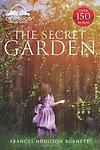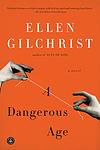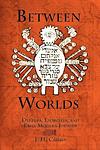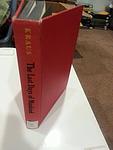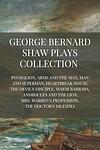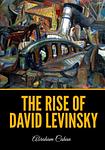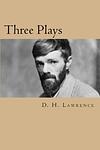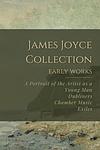The Greatest "Drama, Fiction" Books From 1910 to 1919
Click to learn how this list is calculated.
This list represents a comprehensive and trusted collection of the greatest books. Developed through a specialized algorithm, it brings together 288 'best of' book lists to form a definitive guide to the world's most acclaimed books. For those interested in how these books are chosen, additional details can be found on the rankings page.
Genres
Drama is a genre of literature that typically deals with serious and emotional themes, often exploring the complexities of human relationships and the struggles individuals face in their lives. These books often feature intense character development and intricate plotlines, delving into the depths of human experience and the challenges of navigating the world around us. From family dramas to political intrigue, the drama genre encompasses a wide range of stories that aim to captivate readers with their raw and powerful storytelling.
Countries
Date Range
Reading Statistics
Click the button below to see how many of these books you've read!
Download
If you're interested in downloading this list as a CSV file for use in a spreadsheet application, you can easily do so by clicking the button below. Please note that to ensure a manageable file size and faster download, the CSV will include details for only the first 500 books.
Download-
1. The Secret Garden by Frances Hodgson Burnett
A young, spoiled and unloved girl is sent to live with her reclusive uncle in a large, lonely house after the death of her parents. Through the discovery and cultivation of a hidden, neglected garden, she befriends a local boy and her sickly cousin, and the three children find healing and transformation through their friendship and the magic of the garden.
-
2. Ethan Frome by Edith Wharton
Set in a bleak New England landscape, the book tells the story of Ethan Frome, a poor, hardworking farmer who is married to a sickly, bitter woman named Zeena. When Zeena's young cousin Mattie comes to live with them, Ethan becomes infatuated with her, leading to a tragic love triangle. The narrative explores themes of passion, duty, and the oppressive nature of rural poverty.
-
3. Pygmalion by George Bernard Shaw
"Pygmalion" is a play that explores the transformative power of education and the nature of language and communication. It follows the story of a cockney flower girl named Eliza Doolittle who is taught to speak and behave like a duchess by a pompous phonetics professor, Henry Higgins. Throughout the process, Eliza develops self-respect and personal dignity, challenging the Victorian society's rigid class system. The play also questions the idea of 'making' someone and the moral responsibility that comes with it.
-
4. The Magnificent Ambersons by Booth Tarkington
"The Magnificent Ambersons" is a Pulitzer Prize-winning novel set in the early 20th century that explores the dramatic changes brought about by the industrial revolution in America. It follows the decline of the once-prosperous Amberson family as their fortune and influence wane with the rise of new money and modern technology. The story is centered around the prideful and spoiled George Amberson Minafer, whose arrogance and inability to adapt to the changing world lead to his downfall.
-
5. The Serious Game by Hjalmar Soderberg
"The Serious Game" is a profound narrative about love and regret, following the lives of two individuals, Arvid Stjärnblom and Lydia Stille, who first meet as teenagers and fall in love. However, societal expectations and personal circumstances lead them to marry other people. Despite their respective marriages, they continue to meet throughout their lives, unable to let go of their love for each other. The novel explores the complexities of love, the choices we make, and the consequences that follow, painting a poignant picture of human relationships and the often tragic game of love.
-
6. Three plays: The hostage, Crusts, The humiliation of the father by Paul Claudel
This collection of three plays offers a deep exploration of human emotions, societal norms and familial relationships. The first play, 'The Hostage', revolves around the complexities of love and sacrifice. The second play, 'Crusts', delves into the struggles of poverty and the human spirit's resilience. The final play, 'The Humiliation of the Father', portrays the dynamics of a dysfunctional family and the impact of parental behaviour on children. Each play, while distinct in their narratives, collectively provides a profound commentary on human nature and society.
-
7. The Dangerous Age by Karin Michaelis
"The Dangerous Age" is a reflective epistolary novel that delves into the emotional and psychological journey of a middle-aged woman who, upon reaching her forties, confronts the societal pressures and personal disillusionments that come with aging. Through a series of candid letters, she shares her experiences of estrangement from her husband, the challenges of maintaining her identity and desires, and her struggle to navigate the expectations placed upon women of her age. The protagonist's introspective correspondence reveals the inner turmoil and liberation that accompany her quest for self-discovery and authenticity in a world that often marginalizes women as they grow older.
-
8. The Dybbuk by S. Ansky
The book is a seminal work in Yiddish literature and folklore, centering around the concept of a dybbuk—a malicious possessing spirit from Jewish mythology. The narrative follows the tragic tale of a young bride in a Polish shtetl who becomes possessed by the restless spirit of her dead lover, who had been wronged by his own father and her father's broken pledge. The possession leads to a dramatic exorcism and a series of events that explore themes of love, betrayal, and the clash between the mystical and the rational, as well as the boundaries of life and death. The story delves into the rich tapestry of Jewish mysticism, community, and tradition, reflecting the cultural and religious tensions of Eastern European Jews before the First World War.
-
9. The Last Days of Mankind by Karl Kraus
"The Last Days of Mankind" is a satirical play that provides a critical commentary on the socio-political climate during World War I. The narrative presents a stark portrayal of the absurdity of war and the destructive forces of propaganda, bureaucracy, and nationalism. The author uses a variety of literary techniques, including parody, satire, and direct quotes from contemporary sources, to highlight the folly and tragedy of war. The play is known for its unique style, rich language, and its profound critique of society and culture during a time of great upheaval and conflict.
-
10. Heartbreak House by George Bernard Shaw
Set against the backdrop of pre-World War I Britain, the play unfolds in the eccentric household of Captain Shotover, an old sea captain turned inventor. The narrative explores the lives and loves of the inhabitants of the so-called "Heartbreak House," who represent a microcosm of British society at the time. As they engage in witty banter and romantic entanglements, the characters remain blissfully unaware of the looming external threats that will soon engulf Europe. The play serves as a social critique, highlighting the idle, ineffective intellectualism and lack of moral direction among the British cultural elite, which Shaw saw as contributing to the country's decline and the catastrophic war on the horizon.
-
11. The Rise Of David Levinsky by Abraham Cahan
The book is a classic rags-to-riches tale set in the late 19th and early 20th centuries, chronicling the life of a young Jewish immigrant who arrives in America with nothing and eventually becomes a wealthy garment industry mogul in New York City. The protagonist's journey is marked by his struggle with personal identity and assimilation, as he grapples with the tension between his traditional Jewish upbringing and the allure of success and acceptance in American society. The narrative delves into themes of ambition, the American Dream, and the immigrant experience, offering a poignant exploration of the costs of upward mobility and the complex interplay between cultural heritage and modernity.
-
12. Autobiography of an Ex-Colored Man by James Weldon Johnson
The book is a fictional autobiography of a biracial man living in post-Reconstruction America. The protagonist, who is born to a white father and black mother, initially embraces his black heritage and becomes a successful ragtime musician. However, after witnessing a brutal racial attack, he decides to pass as white to avoid racial prejudice. Despite his financial success and comfortable life in white society, he struggles with his decision to deny his African-American heritage.
-
13. Professor Bernhardi by Arthur Schnitzler
The play revolves around a Jewish physician who heads a Viennese clinic and becomes embroiled in a scandal when he prevents a Catholic priest from giving the last rites to a dying patient who is unaware of the seriousness of her condition. His actions, motivated by a desire to preserve the patient's peace of mind, are misinterpreted as anti-Catholic, leading to a public outcry and a power struggle that reflects the deeply ingrained anti-Semitism and political opportunism of the time. The doctor's principled stand becomes a flashpoint for societal and professional conflict, raising questions about ethics, religion, and the corrosive effects of prejudice.
-
14. The Daughter In Law by D. H. Lawrence
The book in question is a provocative exploration of early 20th-century working-class life and marital dynamics, set in a Midlands mining town in England. The narrative delves into the strained relationship between a young couple and the husband's overbearing mother, who is resistant to relinquishing control over her son. The story examines themes of love, power, and the struggle for independence as the newlyweds attempt to assert their autonomy and navigate the complexities of their intertwined family ties, against the backdrop of social change and the shifting roles of men and women in society.
-
15. Exiles by James Joyce
"Exiles" is a play that delves into the complexities of love, trust, and intellectual freedom. It revolves around Richard Rowan, a writer who returns to Dublin from self-imposed exile with his common-law wife Bertha and their son. Reconnecting with his old friend Robert Hand and his cousin Beatrice Justice, Richard is confronted with the intricacies of his unconventional relationships and the tensions that arise from his liberal views on love and fidelity. The play explores the emotional turmoil and moral dilemmas faced by the characters as they navigate the boundaries of personal freedom and societal expectations, ultimately questioning the nature of true commitment and the possibility of reconciliation within strained relationships.
Reading Statistics
Click the button below to see how many of these books you've read!
Download
If you're interested in downloading this list as a CSV file for use in a spreadsheet application, you can easily do so by clicking the button below. Please note that to ensure a manageable file size and faster download, the CSV will include details for only the first 500 books.
Download